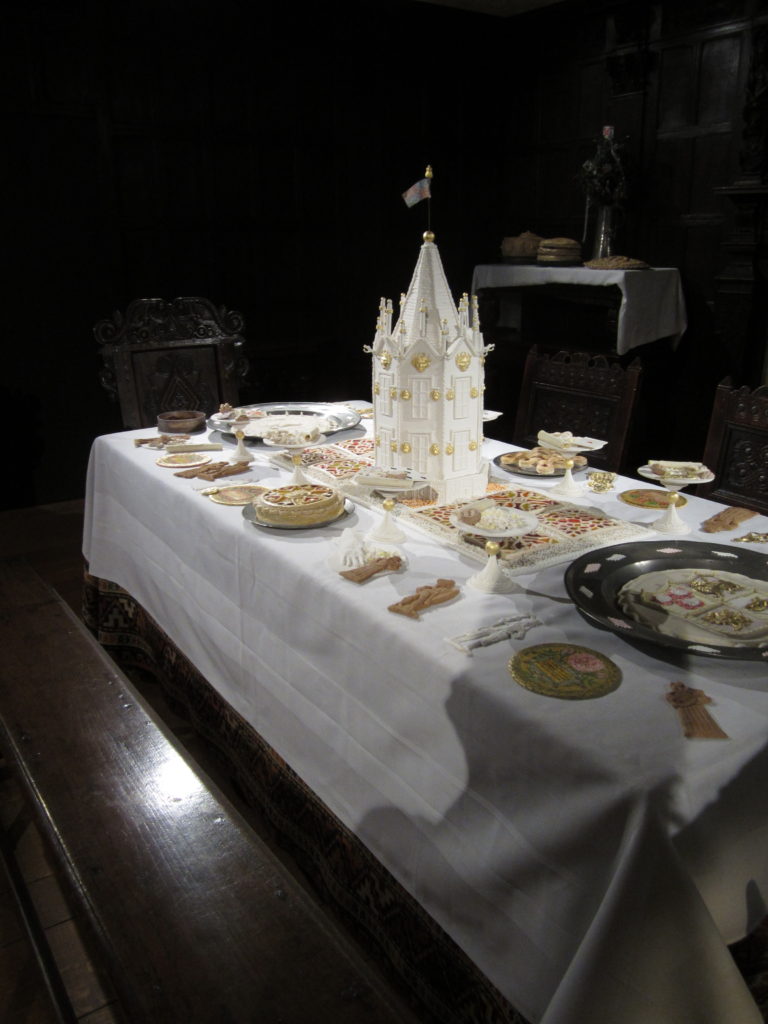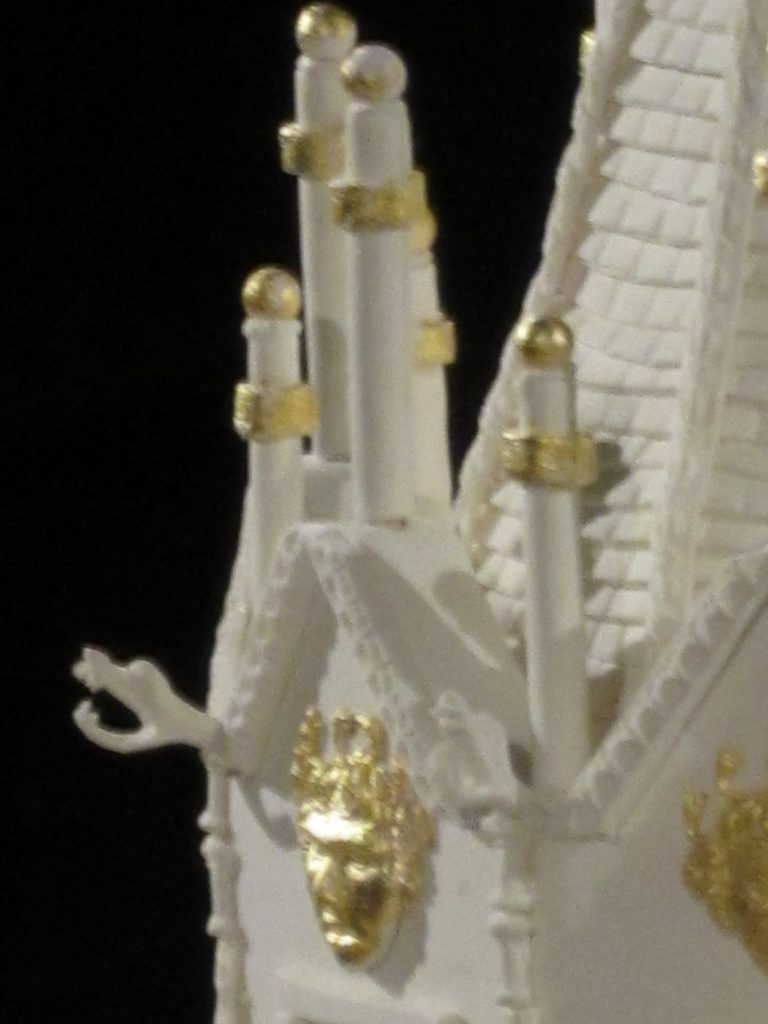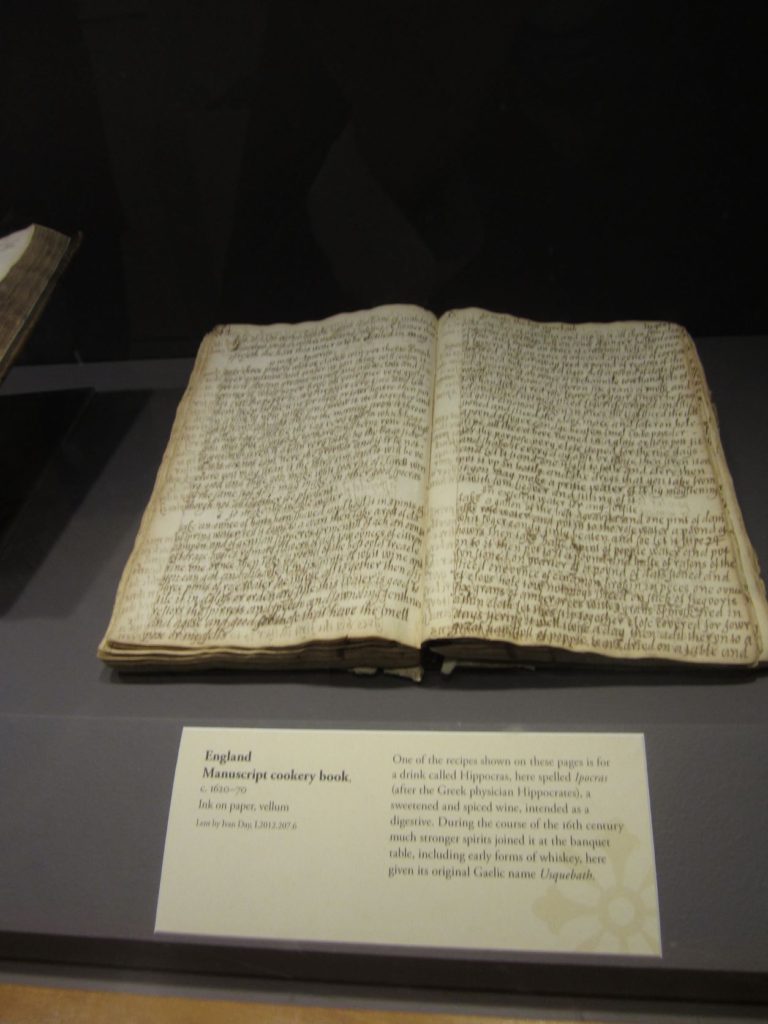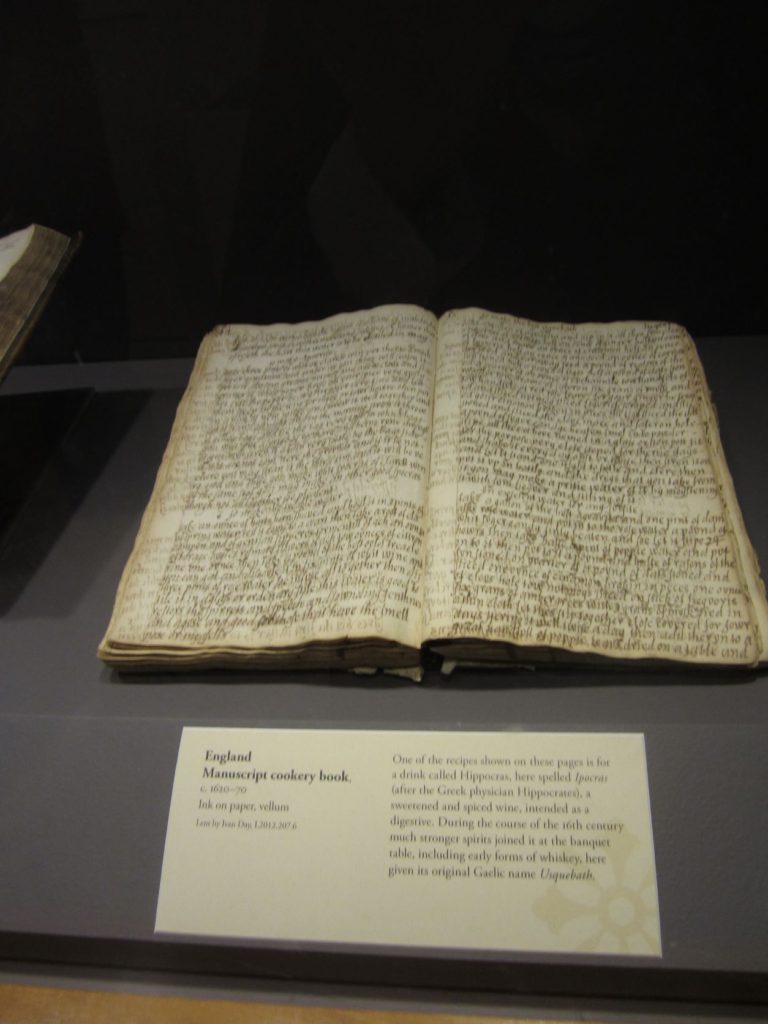
William Shakespeare, Bard of Avon and fountainhead of Early Modern English poetry, died on this day in 1616 and was likely born on this day in 1564. It was unlikely that he ever celebrated with the kind of sugary confection we call a “birthday cake.” (One wonders how he would view such modern beloved spectacles as “The Great British Baking Show“!) He would, however, have known about refined sugar from both the East Indies and the West Indies even if it rarely crossed his own lips, and been aware of the problematic politics and the human cost of the sugar trade.
This article from by food historian Tasha Marks, posted by the British Museum, purports to tell the story of sugar in five objects from the collections. She notes that the British Museum was founded by Sir Hans Sloane (1660-1753), a successful physician, who counted King George I, King George II, and Queen Anne among his aristocratic patients and whose forward thinking helped to promote early practice for small pox innoculation and the use of quinine to combat malaria. And yet, it was this healer whose vast wealth came directly from slave holding and sugar production in Jamaica, whose collections in so many areas–manuscripts, artifacts, and art objects–served as the nucleus of the current British Museum. Today, the British Museum’s holdings include nearly 5,000 objects connected to William Shakespeare and his work; in 2012, the Museum mounted an exhibit titled “Shakespeare: Staging the World,” one that examined the tide of Shakespeare’s popularity and influence from the 19th century to our day. “Sugar,” she notes, “was not just a food, it was an artistic medium of tremendous flexibility.” Marks also includes this intriguing quote from another scholar:
Initially, the displays were important simply because they were both pretty and edible. But over time, the creative impulses of the confectioners were pressed into essentially political symbolic service, and the subtleties took on greater significance. ‘Not only compliments,’ writes one commentator, ‘but even sly rebukes to heretics and politicians were conveyed in these sugared emblems.’
Sweetness and Power: The Place of Sugar in Modern History, Sidney W Mintz (1986)
(For more on sugar as art, search on Tasha Marks Sugar!)
Certainly sugar is an even more prevalent part of our modern world than the works of the Bard. (The biggest consumer of sugar in the world today? You guessed it: the U.S.A.) Just as certainly, Shakespeare had awareness of its double nature, as medicianal and celebratory at times, and as poison to human bodies and corrupting of human values just as often. His poems and especially his plays are full of references to sweetness that lifts but also cloys or acts as a surface decoy for devious designs.

In A Midsummer Night’s Dream, for instance, the frivolity and fun and high comedy are a confection created on the top of dark materials from a world where the marriage plot recognizes that fathers can compel daughters to marry on pain of death. And consider this passage from Act III, scene 2 of the history play, Henry VI, Part 2, a play rife with hidden and public treasons, spying, self-interest writ large, civil rebellions, and murderous double-dealing–and pointed metaphors, including:
“Hide not thy poison with such sugar’d words;”
Spoken by the King as a rebuke to his courtier, the murderous and duplicitous Lord Suffolk, the doomed King makes clear that he sees through surface sweet phrasings.
Background on My Poem, “Elizabethan Sugar Work”:
This is the seventh year in a row that I have written something to acknowledge Shakespeare’s influence on me. (If you want to see the first five of these efforts, you can check posts for April 23 from 2016-2020.)
It was a visit that Julia and I made to the Minneapolis Institute of Art in December of 2012 that came to mind today, and that memory led to the poem for today, as well as the post above. Here are some photographs I made in 2012 one of the period rooms that then held a mini-exhibition on Elizabethan sugar works.





Happy Reading! Happy Writing! Happy Celebrating! LESLIE
